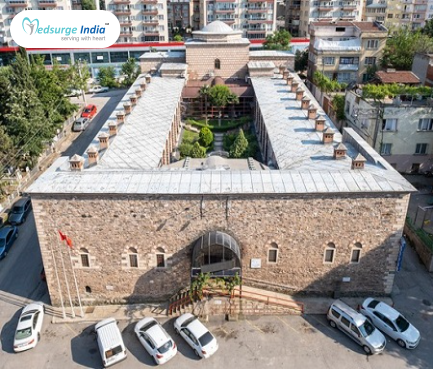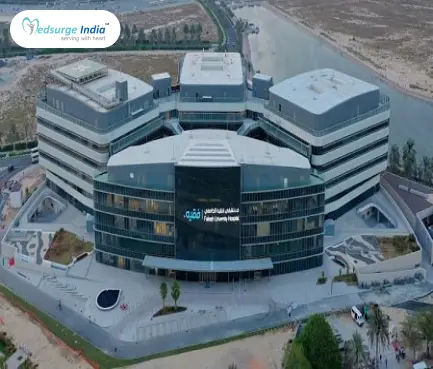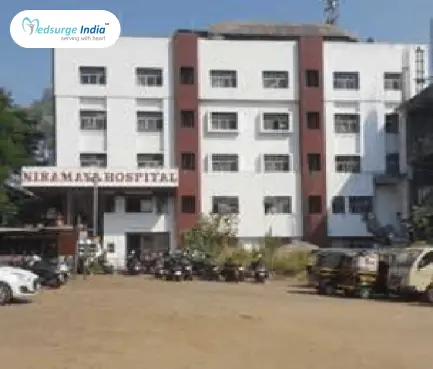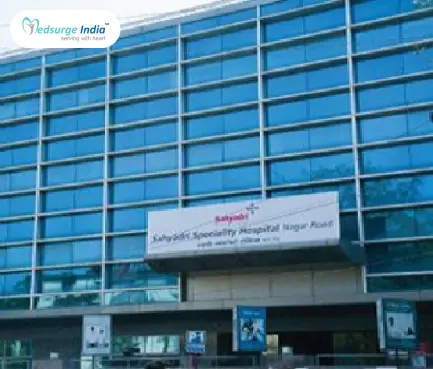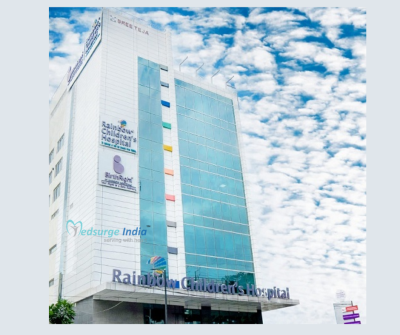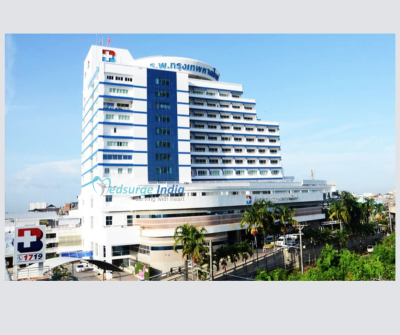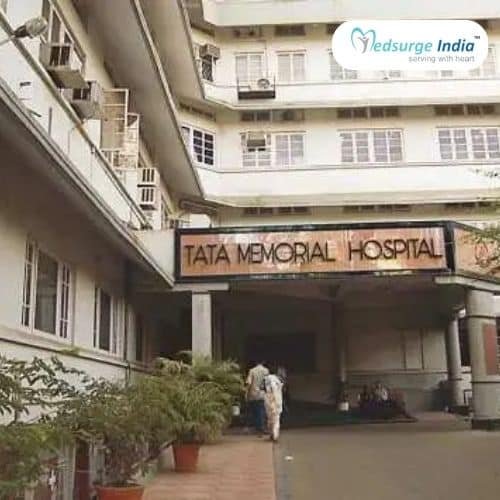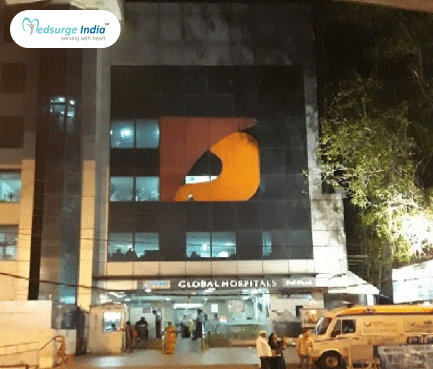
The bilateral hip disorder is a common finding that could happen in around 42 percent of the populace with osteoarthrosis, and it’s estimated that 25 percent of individuals with osteoarthritis requiring total hip replacement may require a bilateral replacement. This has resulted in the test of the greatest strategy to run a hip replacement without raising the probability of perioperative comorbidities, using as alternatives a simultaneous bilateral hip replacement or a sequential operation.
Types of Bilateral Hip Replacement
- Simultaneous bilateral Hip replacement –When both knees have been replaced at the same time in one operation it’s called simultaneous bilateral knee replacement.
- Staged bilateral Hip replacement – In this, both knees have been replaced in different time intervals it’s termed staged bilateral knee replacement.
- Hip resurfacing- Resurfacing the first socket and the ball of the thigh bone. This Sort of operation has a lower risk of dislocation and the individual may have the ability to return to some higher level of physical activity.
- Minimally invasive total hip replacement – reduces the delicate tissue damage resulting in shorter healing time, fewer odds of post-surgical complications.
Diagnosis for Hip Replacement Surgery:
- Osteoarthritis is a degenerative joint disorder also called wear and tear arthritis wherein the typical smooth surface of bone burns leading to the bone to bone gain generating pain.
- Rheumatoid arthritis is an autoimmune disorder, where the synovial membrane becomes inflamed. This tissue then generates excess subcutaneous fluid, so damaging the articular cartilage.
- Trauma – Severe hip Fracture or Injury Resulting in damage of articular cartilage
- Necrosis – When there’s insufficient blood flow to the ball part of the hip joint, the bone may collapse and deform.
- Developmental dysplasia – congenital dislocation of the hip.
Tests before Hip Replacement Surgery
- Medical Background past and Present — to know about the Scope and duration of pain, Beyond Harm, surgeries are done if any
- A physical evaluation is done to Comprehend the movement, stability of this joint.
- X-rays and MRI to ascertain the degree of harm, illness of bones and soft tissue.
Symptoms for Hip Replacement
Regardless of taking Drugs, physical therapy, and other Traditional Approaches:
- Debilitating pain persists
- Limiting mobility
- Interferes with regular activities
- Makes it Hard to grow from a seated posture
Want to know more about How to prepare for Hip Replacement? Then click here.
Bilateral Hip Replacement Surgery Cost in India
Bilateral Hip Replacement Surgery Cost in India ranges from Rs. 2.1 Lakh to Rs. 5 Lakh (2500 USD to 6000 USD). For Bilateral Hip Replacement Surgery in India, the expenses are subject to variation based on the patient’s condition and the specific treatment approach chosen by the doctor following the results obtained.
Bilateral Hip Replacement Surgery Cost in Various Cities in India
| Cities | Starting Cost (USD) |
| Delhi | 2500 USD |
| Gurgaon | 2400 USD |
| Noida | 2200 USD |
| Mumbai | 2600 USD |
| Hyderabad | 2400 USD |
| Chennai | 2600 USD |
| Kolkata | 2400 USD |
| Bangalore | 2500 USD |
Please note that the pricing and the treatment for Bilateral Hip Replacement Surgery cost in India will vary depending on the patient’s choice and other various factors.
Factors That Can Affect Bilateral Hip Replacement Surgery Cost in India
The following here are some variables that can affect Bilateral Hip Replacement Surgery Cost in India:
- Medication costs.
- Duration of treatment.
- Geographical location.
- Hospitalization expenses.
- Government policies and subsidies.
- Medical tourism packages.
- Hospital reputation and infrastructure.
- The expertise and experience of medical professionals.
- The type and frequency of diagnostic procedures.
- The choice of treatment modality.
In addition, the quality and level of medical care and facilities offered are on par with renowned healthcare institutions worldwide, even after factoring in the costs of accommodation, meals, and transportation. Moreover, under the guidance of highly proficient doctors, Medsurge India ensures that patients receive the most affordable Bilateral Hip Replacement Surgery Cost in India.
Get Free Cost Estimation
Procedure
Before Surgery
- Preoperative evaluation to Announce your fit for Operation Including Current past Health history, complete blood count, urine analysis, clotting factor Analyzing, ECG.
- X-ray and MRI scan to comprehend disease condition and select treatment choice.
- The physician will check your routine medication and even discontinue a few drugs before surgery.
During Surgery
- Surgery involves the Replacement of the femoral head and acetabulum with synthetic elements or prosthesis.
- The Process could take around 3-4 hours, Surgery performed under General / Spinal anesthesia.
- The skin incision is made over the hip, the surgeon carefully separates muscles and ligaments to access the hip joint.
- The next step surgeon dislocates the joint and removes the femoral head from the acetabulum.
- Damaged cartilage inside acetabulum removed and lost, Inner hollow surface of the acetabulum is analyzed for an acetabular metallic prosthesis that’s fastened with special screws or cement.
- The femoral head is replaced with a metal stent which consists of the distal ball-like structure and stem of a metal shaft.
- The new ball part of the thighbone is then inserted into the socket part of the hip.
- After acetabular and femur Part Have Been Set up, they are Assessed to see That the movement and Equilibrium of the hip joint, X-ray Completed to Confirm if Combined is properly Placed or not.
- Subcutaneous tissue closed with principles.
- Cast put for approximately 2 weeks.
After Surgery
- Transferred to retrieval place and kept in the monitoring
- Compounds and pain killer medication will be administered.
- The patient might need to remain in the hospital for 6-8 days. Stitches or staples will be removed about two weeks following the operation. The patient will have the ability to resume his regular daily tasks within 3 to 6 months after surgery.
- Physical therapy: within the first six weeks is very important. This is important to help strengthen the hip joint
Recommended Video: Hip Replacement Surgery In India- Nigerian Patient Testimonial
Complications of Hip Replacement Surgery:
Hip replacement Operation like any other Operation carries a risk of complications
- Infection (Redness, swelling, bleeding, or another drainage from the incision site)
- Blood clots
- Nerve damage -Numbness and/or tingling in the leg
- A limp, or difficulty when walking, Grinding or clunking in the hip
- Unequal leg spans
The Most Important Frequently Asked Questions
Q: What Is Osteoarthritis?
A: Osteoarthritis, is a degenerative joint disorder also referred to as wear-and-tear arthritis wherein the conclusion of bone starts wearing away, resulting in stiffness and pain. When the cartilage wears off entirely, the bones rub directly against each other causing diminished distress, stiffness, and chronic pain.
Q: Is There Any Particular Age Group for Hip Replacement Surgery?
A. Generally, any patient may be a suitable applicant to get a hip replacement. The majority of the patients are between the ages of 60 and 80, but the operation is not restricted to the older patient.
Q: How Long Does Hip Replacement Surgery Take?
A: Hip replacement surgery takes generally 3-4 hrs.
Q: What Is the Recovery Period for Hip Replacement Surgery?
A: Recovery can take a few months or weeks, based on the individual’s health and age, and many things play an important role in recovery.
Q: Why Do Hip Replacements Fail?
A: The most frequent cause for failure is the loosening of the synthetic ball in which it’s fastened in the femur or loosening of the socket.
Q: in What Cases Is Hip Replacement Surgery Not Advised?
A: Hip replacement surgery not advised in patients with
- Severe Osteoporosis, because bones may be too brittle to properly support and adhere to the new joint prosthesis
- A person suffering from dementia or alcoholism as they will not be able to follow post-surgical instructions
- Patients suffering from an existing infection are also not eligible as these patients are at a high risk of postoperative complications.
Q: What Can Be Done to Improve Recovery After Hip Replacement Surgery?
- Stay active doing gentle exercises
- Avoidance of high action physical work
- Avoidance of high-pressure postures such as squatting or sitting cross-legged on the floor
- Talk with an expert concerning the way you must sleep, sit, stand, get out of bed after surgery
Q: What Are Hip Replacement Surgery Options?
A: There are many options available concerning the different kinds of allowing and Stem:
- Eg: ceramic on Concrete
- Ceramic on ceramic
- Hydroxyapatite (HA)coated stem, Respectively
You can talk about the best option for you along with your surgeon.
Top Hospitals for Bilateral Hip Replacement Surgery in India
Top Doctors for Orthopedics
Dr. Sushal Shantakumar
Consultant
Experience: 13 years of experience
Manipal Hospital (Old Airport Road) Bangalore
Bangalore, India
Dr. Avinash Date
Consultant , MBBS, MS, DNB, Fellowship, FRCS
Experience: 23 years of experience Mumbai , India
Kokilaben Dhirubhai Ambani Hospital, Mumbai
Mumbai India
Dr. Hemant K. Kalyan
HOD
Experience: 29 Years of experience
Manipal Hospital (Old Airport Road) Bangalore
Bangalore, India
Dr. S.Udhayashankar
Consultant
Experience: 11 years of experience
SIMS Hospital, Vadapalani, Chennai
Chennai, India
Dr. Amit Kumar Srivastava
Senior Consultant
Experience: 17 years of experience
Max Super Speciality Hospital, Patparganj, New Delhi
New Delhi, India
Dr. Ishwar Bohra
Senior Consultant
Experience: 23 years of experience
BLK Super Speciality Hospital, New Delhi
NewDelhi, India
Dr. Sarang Deshpande
Consultant
Experience: 20 years of experience
Wockhardt Super Speciality Hospital, Mira Road
Mumbai, India
Dr. Kesavan Rajagopalan Amruthur
Senior Consultant , MS, MBBS
Experience: 25 years of experience
Global Hospitals, Chennai
Chennai , India
Dr. Vinay Gupta
Consultant
Experience: 40 years of experience
Saroj Super Speciality Hospital
New Delhi, India
Dr. Ritwik Ganguli
Consultant
Experience: 12 years of experience
AMRI Hospital, Kolkata (Dhakuria)
Kolkata, India
Dr. Gaurav Saini
Experience: 17+ years of experience
Max Superspecialty Hospital, Mohali
Mohali, India
Dr. Veerendra Mudnoor
Consultant
Experience: 13 years of experience
Apollo Spectra Hospital, Hyderabad
Hyderabad, India


